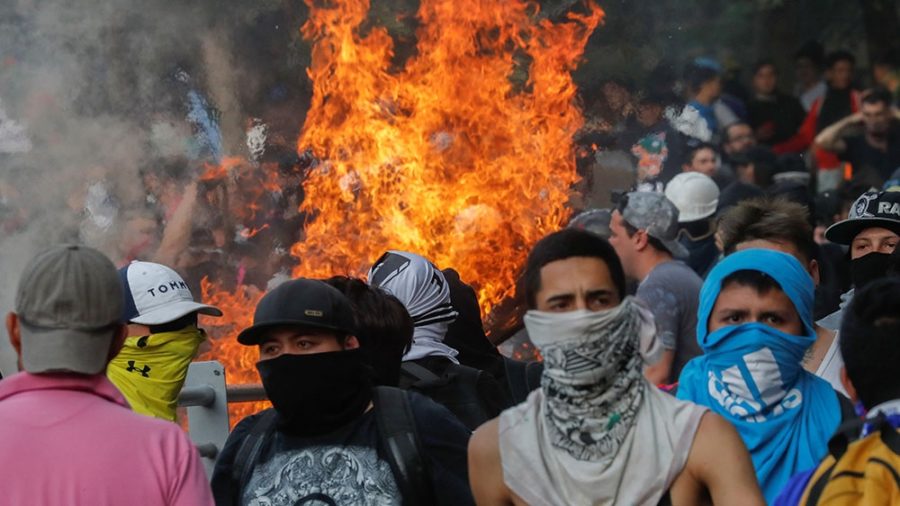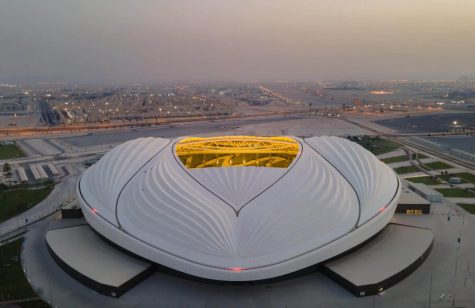“It’s not about 30 pesos. It’s about 30 years” Why Chile is up in flames over metro fares
“The protesters’ rage is born of the frustrations of everyday life.” – Editorial Board, The New York Times
In Chile, a political unrest in response to the country’s staggering wealth inequality status is entering its fourth week. As said inequalities threaten the country’s stability, the unwise decision to hike up government-owned subway fares landed them in just the spot for passion-fueled protesters to have their words heard and their actions seen.
Beginning on the 18th of October, Chilean taxi drivers blocked highways in capital city Santiago, initiating an active protest against increased road tolls and metro fares. Although the protests were sparked over the raises, many participants’ causes have been pointed to other subjects such as Chile’s political economy, wealth inequality or police/military violence toward protesters.
In response to this, “Chile’s center-right president, Sebastián Piñera, called for a state of emergency, sending military out onto the streets and installing a curfew in cities across the nation for the first time since the end of the brutal dictatorship of the 1970s and ’80,” according to Vox.
“What we Chileans want is equal treatment for all, that the cake be divided up fairly,” says Mario Gonzales, a Chilean citizen.
According to an article in TIME magazine, “Young, old, poor and middle-class, protesters said they were united by frustration with the so-called neoliberal model that has left Chile with region-topping prosperity along with a widely criticized private pension system, and two-tiered health and education systems that blend the public and private, with better results for the minority who can afford to pay.”
The ongoing revolt has caused Sebastian Pinera, president of Chile, to call for a national agreement on peace as well as a renewed constitution in which the people will have the last word on topics such as higher pensions/wages and affordability of healthcare and education.
Although the proposals could bring the country the closest it has ever been to bearing a system that suits the people’s needs equally, I say Chileans can, will, and should take such statements with a grain of salt.
For a bit of context, “In 1973 the military overthrew constitutionally elected President Salvador Allende, imposed a dictatorship, and ruled the country until 1990. Basic human rights were abused, the country went through a period of marked international isolation, and the Augusto Pinochet regime transformed the economy into one based on a free market model.” – This is Chile
The current protests seem to echo those of the past, which sprouted from the country’s economic collapse of 1982. Also, as previously mentioned, a call for militant action and curfews had not been used since the Allende dictatorship.
Though a nationwide riot seems to be a bit of an overreaction, especially to a $0.04 spike in metro fares, if you take a peek between the lines of Chile’s seemingly successful free-market economy, there’s a lot more to it.
From the outsiders’ view, both Chile’s governance and economy has been pedestalized as a success story of free-market capitalism, when in reality, Julio Pinto, a professor at the University of Santiago, says, “The image Chile projects internationally is that of a country that has grown, that has developed, that is in many senses a wealthy country but this image is held up on very flimsy pillars.”
To support that idea, “the richest 1 percent of the population earns 33 percent of the nation’s wealth, making Chile the most unequal member of the OECD (an intergovernmental economic organization of largely developed nations)” – Vox.
As mentioned before, alternative events have been held collectively within the same ongoing protest. Residents of drought-impacted communities have also taken to the streets of Santiago while conferences on United Nations project COP25, (2019 United Nations Framework Convention on Climate Change) were being held in Madrid, Spain to express the damages of avocado farming and privatisation of both water and land in Chile.
“More than 100 environmental organisations launched their parallel conference in Chile’s capital Santiago on Monday, day one of the official COP25 conference in Madrid.” – Aljazeera
Since the start of the protest, over 24 people are expected to be dead and more than 2,300 have been injured. Of these cases, one in particular has caused even more of an uproar.
Gustavo Gatica was peacefully taking photos of surrounding protests on November 8th when he was suddenly blinded by the rubber bullets of a nearby police officer. He is one of 2 people to be completely blinded during the protests, along with over 241 others suffering eye injuries.
Gatica’s case caused Gonzalo Blumel, interior minister, to revise police protocols around using force on protesters. Pinera was apparently not available for commentary at the time.
Gatica’s face and story have become the backbone for protestors against the abuse of human rights. “Gustavo Gatica’s name is shouted at police, borne on placards and scrawled on walls around the city.” – INDEPENDENT.

I am in the 12th grade. I took journalism as a way to improve my writing skills and keep up with the news. In the future I want to major in engineering...












